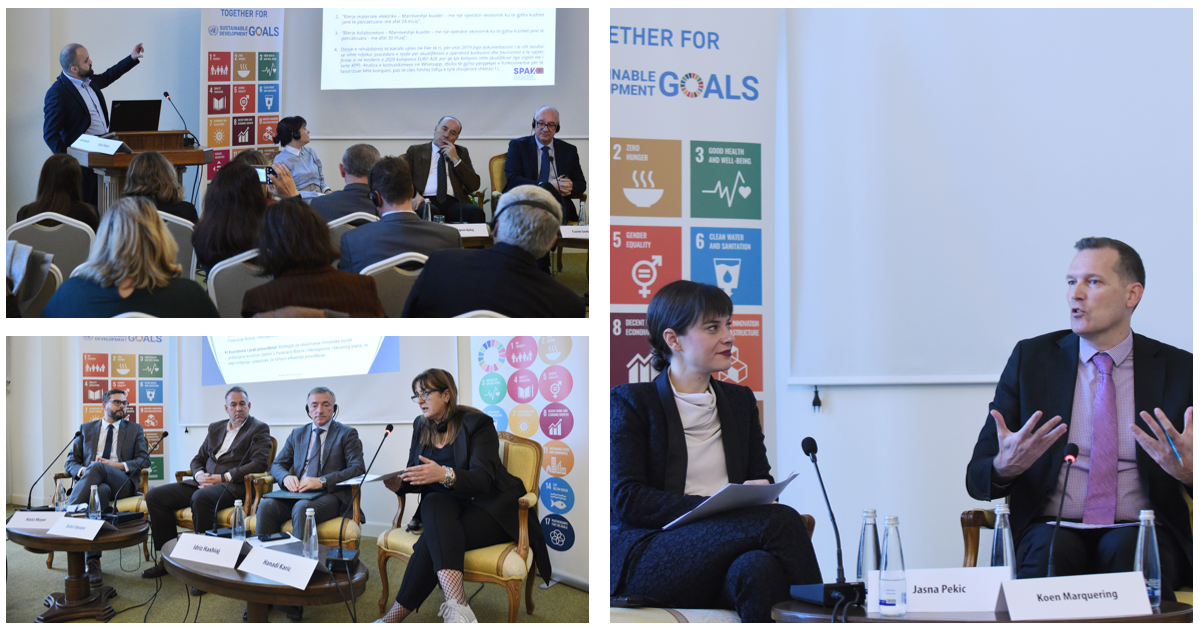Anti-Corruption Conference Discusses New Strategies to Boost Fight Against Corruption in South-Eastern Europe
Pristina, 18-19 November 2024 – A two-day conference brought together around 50 policymakers and anti-corruption practitioners in Pristina this week to discuss best practices in the prevention of corruption. Marking the International Day for the Prevention of and Fight against All Forms of Transnational Organized Crime, held globally for the first time on 15 November, and in the run up to International Anti-Corruption Day on 9 December, the conference offered an opportunity to reflect on innovative preventive measures and effective law enforcement responses to corruption.
With jurisdictions in South-Eastern Europe in the process of launching new anti-corruption strategies, the conference featured a high-level segment with the participation of H.E. Albin Kurti, Prime Minister of Kosovo.[1]
“The fight against corruption is not merely a legal issue; it is a matter of social justice and economic development. A democratic society, where citizens have trust in their institutions, is the foundation for sustainable well-being and progress”, Prime Minister Kurti noted, whilst announcing the expected approval of a new strategy against corruption by the end of this year.
In her statement, H.E. Adea Pirdeni, Minister of State for Anti-Corruption of Albania, said that the fight against corruption is a priority for the Albanian government, with judicial reform and the creation of the Special Prosecutor's Office producing results.
“For the United Nations system, fighting corruption is essential, because it hampers the achievement of our core, common goals of peace and security, human rights, and sustainable development”, stated Mr. Nuno Queiros, United Nations Development Coordinator a.i.
In referring to the results of the recent Summit of the Future, he stressed that preventing and combating transnational organized crime and related illicit financial flows is a core priority for the international community. “This means scaling up work on comprehensive strategies against corruption and organized crime, including prevention, early detection, investigation, protection and law enforcement, tackling the drivers, and engagement with relevant stakeholders in government, civil society and the private sector”, Mr. Queiros added.

Koen Marquering, UNODC Deputy Regional Representative for South-Eastern Europe, highlighted the United Nations Convention against Corruption as the core global normative framework to guide the development and implementation of effective anti-corruption strategies, including through relevant tools, such as UNODC’s Practical Guide for Development and Implementation of National Anti-Corruption Strategies.
Panel discussions focused on successes and challenges in the development and implementation of anti-corruption strategies in the region with examples from Bosnia and Herzegovina, which adopted a new strategy this year, and Albania and Kosovo, which are currently finalising their new strategies.
Participants discussed how inter-ministerial coordination in the fight against corruption can be further enhanced, whilst various academics and representatives from the private sector and civil society showcased promising practices to promote a culture of integrity in society. Participating law enforcement, prosecutors and other stakeholders brainstormed on asset recovery efforts as well as asset recovery offices as an important institutional mechanism to streamline efforts to confiscate criminal proceeds from corruption.
The conference was convened by the United Nations Office on Drugs and Crime (UNODC), the United Nations Development Program (UNDP) and the United Nations Mission in Kosovo (UNMIK) in partnership with relevant institutions from Kosovo and other jurisdictions in the region.
UNODC continues to support implementation of international standards in the fight against corruption and organized crime through its Regional Programme for South-Eastern Europe, as well as the Regional Platform for Fast-Tracking the UN Convention against Corruption and the related Regional Anti-Corruption and Illicit Finance Roadmap, which was endorsed by all jurisdictions in the region in 2021.
The Regional Anti-Corruption and Illicit Finance Roadmap aims to deliver tangible improvements through the implementation of national and regional anti-corruption measures in line with international standards and recommendations, including those from the European Commission’s annual reports with respect to the benchmarks for EU accession, as well as the Council of Europe’s Group of States against Corruption (GRECO).
